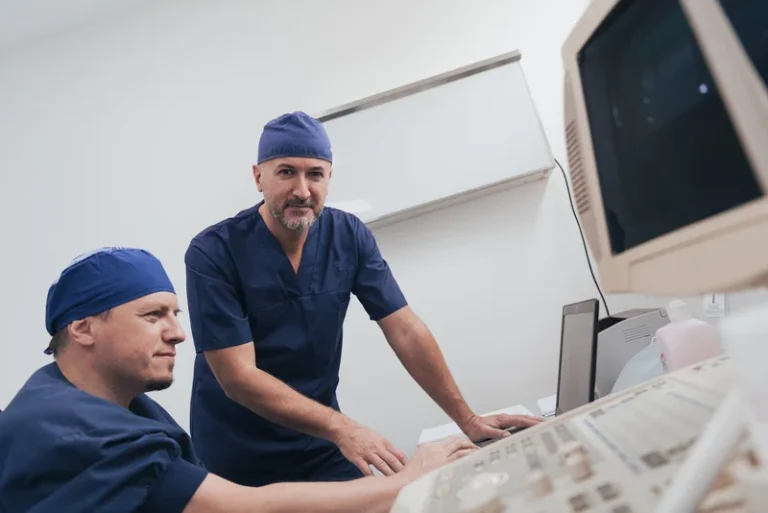How does alcohol affect your skin? Long and short-term effects

Regular intake may lead to premature wrinkles and fine lines. These signs of aging can appear earlier for individuals who drink heavily. Feeling low or anxious may result in unhealthy coping mechanisms, including more drinking. This creates a cycle where both mental well-being and skin health deteriorate. Alcohol can increase oil production in the skin, leading to clogged pores.
Can You Reverse Alcohol Skin Damage?
Understanding these effects can help individuals make informed decisions about their alcohol consumption and manage their health effectively. As mentioned earlier, alcohol is a diuretic and can lead to dehydration. Dehydration can have a detrimental effect on your skin health. When your body is dehydrated, your skin becomes dry, flaky, and less elastic. Long-term alcohol consumption can trigger persistent skin issues like increased wrinkling, permanent loss of skin elasticity, and exacerbation of inflammatory skin conditions.
The Aging Process and Skin: The Impact of Alcohol
This genetic factor explains why some people flush easily while others do not. It also highlights the importance of moderation in =https://ecosoberhouse.com/ alcohol use for those affected. To get your pH balance back on track, scale back on chemical exfoliants and reach for prebiotic skincare instead. Salicylic Acid is a BHA (Beta Hydroxy Acid) which controls sebum production and helps prevent breakouts.
Skin changes due to liver disease

Up to 40% of northeastern Asians experience flushing and elevated heart rate after drinking even minimal amounts of alcohol, due to accumulation of acetaldehyde. This is because of a mutation in acetaldehyde dehydrogenase (ALDH2), the enzyme that converts acetaldehyde to acetate. Transient flushing is also a common side effect of alcohol, particularly in heavy drinkers.

Eight diabetic-friendly drinks to try during summer
- Psoriasis is another skin condition that has been linked to alcohol consumption.
- Patients who make this change often notice an improvement in their skin condition over time.
- Regular heavy drinking can trigger psoriasis — a condition where skin cells build up and make dry, itchy patches.
- Patients often find themselves needing stronger medications or more frequent treatments.
- Alcohol may worsen these patches, making them more prominent and painful.
The extent to which skin damage can be reversed may vary from person to person and hinges on factors like the duration and severity of alcohol abuse, genetics, and overall health. Seeking professional advice and taking a holistic approach to your well-being can improve the likelihood of skin recovery while also benefiting your overall health. Embracing a healthier lifestyle can contribute to skin recovery. Regular exercise, adequate sleep, and stress management are factors that can positively impact skin health. If you just want to cut back on your drinking or are sober curious, find ways to have fun and hang out with your friends that don’t include drinking.

Daily skincare
- People may notice this change in their skin after years of heavy drinking.
- Regular exposure to sun without proper protection while drinking outdoors can further elevate this risk.
- Credible source of health and wellness knowledge, delivered daily.
- For example, individuals with rosacea may notice increased redness after drinking.
The best way to avoid damaging your skin in the long and short term is to maintain a minimal or moderate level on your alcohol consumption. “Whenever I drink alcohol, my skin becomes oily the next day,” he explains, mentioning that he has observed drug addiction the pattern over time. Alcohol may be a staple at social gatherings, but its effects on our skin are anything but celebratory. With every sip, alcohol dehydrates the body, leaving the skin dull, dry, and lifeless.
If you notice dullness or dryness, you may want to use a heavier moisturizer even during the day. If you notice any flare-ups in chronic skin conditions after drinking, take steps to treat the symptoms as soon as possible. Talk to your dermatologist if you need specific recommendations. Prolonged heavy drinking can also increase a person’s risk of more serious conditions, such as skin cancer. It can also cause skin changes resulting from alcoholic liver disease.
It also controls non-inflammatory acne, so this is your go-to post-party to keep pesky spots at bay. When faced with a complexion that’s more Casper the ghost than Cameron Diaz, it’s tempting to reach for an exfoliator, yet being overzealous with peels or scrubs can cause pH levels to plunge further. Drinking before bed messes with the stages of your sleep cycle meaning less quality sleep (and worse hangover), says an article published by the Sleep Foundation.
When’s the good news? Every day and never

Alcohol may trigger inflammation, raise histamine levels, or prevent the skin from healing quickly if it cracks. Applying products that contain alcohol to the skin can also cause dryness and irritation. Evidence indicates that alcohol consumption in pregnancy increases the risk of a baby later developing eczema.
Effects of Alcohol on Skin
- Dehydration can lead to dryness, dull pigmentation, wrinkles, and sagging.
- Skin rashes can manifest in different forms, including patches or nummular patterns.
- If you are struggling with alcohol addiction, seeking professional help is essential for both your overall health and your skin health.
Although drinking alcohol can cause a person to fall asleep faster, it may cause them to wake up more often during the night. At intoxicating levels, alcohol acts as a vasodilator (something that dilates blood vessels). So combining the two could lead to a condition called orthostatic hypotension (a sudden drop in blood pressure). To tell if alcohol might be a trigger for eczema symptoms, a person can try avoiding alcohol how alcohol affects your skin in food or drink for a sustained period of time and then reintroducing it. Alcohol is an ingredient in some personal care products, such as hand sanitizer.

Leave a Reply
Want to join the discussion?Feel free to contribute!